Best Actress Challenge: Michelle Yeoh, Everything Everywhere All at Once (2022)
"I will always, always want to be here with you"
Hey folks!
Welcome back to the second post of my Best Actress Challenge series, where I review every Best Actress winner at the Oscars.
I kicked things off with Emma Stone’s recent win for Poor Things previously, and today we’re diving into Michelle Yeoh’s historic win for her portrayal of Evelyn Wang in the absurdist comedy Everything Everywhere All at Once, directed by Daniel Kwan and Daniel Scheinert.
First impression
Growing up in Singapore, Michelle Yeoh has always been a familiar presence. Even before I started paying close attention to cinema, I remember seeing her regularly on my TV screen as a kid, especially this one Anlene commercial that no Singaporean could escape.
Of course, I later discovered that Yeoh is an icon of ‘80s and ‘90s Hong Kong cinema, best known for her stunt work in martial arts films and for holding her own alongside Jackie Chan.
Yeoh had her big break internationally in 1997 as a Bond girl in Tomorrow Never Dies. In 2000, she led Ang Lee’s Crouching Tiger, Hidden Dragon to global success, including 10 Oscar nominations and a BAFTA Best Actress nomination for herself. She continued working steadily between the East and West and later regained prominence in Hollywood with supporting roles in Crazy Rich Asians and Marvel’s Shang-Chi and the Legend of the Ten Rings.
And then came Everything Everywhere All at Once.
From the trailer alone, it was clear how ambitious this film was, from the bold multiverse premise to the highly stylized visuals. With indie powerhouse A24 at the helm, I was looking forward to something inventive and original, and the film surely exceeded my expectations.
Between the wacky action sequences, the vibrant colors, and the fast cuts, the film left me completely overstimulated in the best way possible. It was simply bonkers in a way that I was not prepared for, and I loved every second of its craziness.
Here’s my Letterboxd review back in April 2022:
“A spiritual experience and so much more. I've never seen anything like this film and I don't think I ever will. Thank you cinema.”
It didn’t take long for EEAAO to become a word-of-mouth sensation, and I knew I had to do my part to spread the gospel. I even watched it for a second time in the theaters that June. As the film grew organically, I soon found myself scouring every corner of the internet to find personal anecdotes from people who connected with the film in their own ways.
I was in awe of how the film transforms into whatever the viewer needs it to be—an ode to the immigrant experience, a family drama grappling with generational trauma, a rebellion against nihilism, or a queer empowerment story. There’s something for everyone to take away from, and that in itself, is an amazing feat.
If you were part of the EEAAO hive back in 2022, you would’ve come across memes like these. Sure, it might seem like entry-level philosophy to some, but for someone like me who was struggling to make sense of the mess that is life, it spoke to me and helped reshape the way I perceived existence and mortality.
It sounds ridiculous, but truly, so many of the worries we carry are just arbitrary obstacles living in our minds because we’ve chosen to give them meaning. And sometimes, all it takes is a film like this to come along and remind us that…*drum roll*…nothing matters.
Of course, I was all in on Michelle Yeoh receiving her flowers and getting awards recognition from Hollywood, but it sure felt like a pipe dream at first. Oscar buzz for a film as crazy as this? Too good to be true.
But then to see it actually materialize, with not just Yeoh winning Best Actress, but the film sweeping several major awards—Picture, Director, Supporting Actor, Supporting Actress, and Original Screenplay—is still so mind-blowing till this day.
Rewatch
When a film becomes a cultural juggernaut like EEAAO did, backlash is inevitable. You don’t win seven Oscars without detractors yapping on about how the film didn’t deserve the hype. Heading into my third watch last week, I was curious: Does it still hold up? Or has the magic faded?
This time, I focused my attention on Yeoh’s Evelyn, using her as an anchor to navigate the multiversal mayhem. Evelyn is a perfectly ordinary everywoman—overworked, disillusioned, and utterly consumed by the relentless grind of life. A huge responsibility suddenly falls on her shoulders, and Yeoh plays up the absurdity of the situation very well by having Evelyn be the foil to the goofiness of her husband Waymond, the strong-willed Alpha Waymond, or the campiness of Jobu Tupaki.
Yeoh’s comedic timing is impeccable, especially the way she delivers sighs of “aiyos” and “神经病” (crazy in Mandarin), just some words I’ve heard countless times in my household. Her exasperation feels hilariously relatable, especially as we, the audience, react to the film’s absurdity alongside her.
What stood out too was how Yeoh captured the long-standing pain and regret Evelyn held inside her for decades. In the scene where Evelyn peeks into an alternate life without Waymond, Yeoh delivers a heartbreaking moment of delicate longing, bringing a tear to my eye.
And in that scene with the now-iconic “laundry and taxes” line delivered by Waymond, it wasn’t just his words that moved me this time, but Evelyn’s reaction. Yeoh masterfully conveys the weight of that epiphany—the moment Evelyn realizes that, despite the supposed meaninglessness of life, she has consciously chosen to live this one with her family, and that’s worth it.
Perhaps my only gripe with Yeoh’s performance was Evelyn’s fluctuating accent and command of English, though it’s more of the script’s fault for the latter. At times, Evelyn speaks with an exaggerated Hong Kong accent, her English deliberately of a non-native standard to emphasize her immigrant background. Sometimes, her natural Malaysian accent slips through, and then there were other moments where her English is as polished as Yeoh herself.
Regardless, the film is a triumphant celebration of Yeoh’s legacy, so it makes sense that she pulled from every corner of her life and career. I enjoyed the sense of comfort and familiarity the film evoked, hearing Michelle Yeoh casually switch between English, Mandarin, and Cantonese.
The supercut of an alternate Evelyn as a glamorous movie star is an obvious nod to Yeoh herself, incorporating real-life footage of the movie star. One blink-and-you’ll-miss-it moment that caught my eye was a shot of Yeoh at the 2015 Singapore International Film Festival (SGIFF), a small detail I’m glad I caught.
So yes, with all that said, EEAAO is still spellbinding and the magic hasn’t faded a bit.
The nominees
Who won what:
Golden Globes Best Actress (Drama): Cate Blanchett, TÁR
Golden Globes Best Actress (Comedy/Musical): Michelle Yeoh, Everything Everywhere All at Once
Critics Choice Best Actress: Cate Blanchett, TÁR
SAG Best Actress: Michelle Yeoh, Everything Everywhere All at Once
BAFTA Best Actress: Cate Blanchett, TÁR
Oscars: Michelle Yeoh, Everything Everywhere All at Once
From the very beginning, the media positioned Cate Blanchett and Michelle Yeoh as the clear frontrunners, even pairing them up for Variety’s Actors on Actors. It was lovely to see how cordial they were whenever they crossed paths at events, and the two took turns winning different precursor awards.
The Blanchett vs. Yeoh showdown was one of the most contentious Best Actress races we’ve had, and it did get ugly for a while. A part of Yeoh’s narrative was making history as the first Asian actress to win Best Actress, while Blanchett’s campaign leaned on the ‘undeniable performance of the year’ angle.
This division fueled toxicity online, with accusations flying in both directions. If Yeoh won a precursor, some argued it was due to her ethnicity rather than award bodies truly rewarding the best. If Blanchett took an award, others claimed it was the result of an industry that systematically favors whiteness.
Nuance was in short supply, and the discourse reached its breaking point when Yeoh shared a Vogue article on Instagram that highlighted the significance of her win. While Yeoh later deleted the post, some interpreted it as unprofessional and an unnecessary dig at Blanchett.
Personally, I felt that the Vogue article made a valid point in calling out the Academy’s structural lack of diversity, especially in the Best Actress category. To this day, Halle Berry and Yeoh herself are the only POC winners for Best Actress. If you isolate just the segment on Blanchett, it might seem like a personal attack, but the article ultimately speaks to something much larger than her, Yeoh, or even the Oscars themselves. It highlights a systemic issue of the roles non-white actors are (or aren’t) given, the opportunities available to them, and how Hollywood’s biases shape who even gets to be in the conversation for these awards in the first place.
Speaking of Blanchett, she gave a shoutout to several actresses in her Critics Choice acceptance speech, including Andrea Riseborough, a fellow nominee in the category who was deep in controversy herself.
Riseborough’s nomination for To Leslie came out of nowhere; she was not nominated for any precursor awards and had few mentions amongst film critics circles too. But thanks to a suspiciously elaborate last-minute grassroots campaign led by well-connected actors, including Frances Fisher and Kate Winslet, she defied all odds and made the eventual Best Actress lineup.
Her nomination raised eyebrows on how much influence Hollywood’s inner circle actually had over Oscars voting, and the whole fiasco led to a formal review by the Academy, though her nomination was ultimately unaffected.
Followers of awards season agreed that Riseborough’s eleventh-hour surge likely took the spot of either Danielle Deadwyler or Viola Davis that year, as they were both nominated across the board heading into Oscars nominations.
When asked of the snub, Deadwyler alluded that voters chose not to see her film Till, a biographical film about Mamie Till, a Black activist who fought against the violent persecution against Black Americans after the infamous lynching of her teen son Emmett. “We’re talking about people who perhaps chose not to see the film. We’re talking about misogynoir, like it comes in all kinds of ways, whether it’s direct or indirect,” she said.
As for Viola Davis, she was in contention for The Woman King, a historical film about an all-female African warrior regiment. She wrote in an Instagram post: “Whether it be a "grassroots" campaign spearheaded by peers or multi-million industry dollars backing one, we rarely are the benefactors … I stand in solidarity with [director] Gina Prince-Bythewood and all artists of color who continue to work, create, thrive despite our environment.”
Other performances I loved but stood no chance: Tang Wei, Decision to Leave; Jessica Chastain, The Good Nurse; Park Ji-min, Return to Seoul; Emma Thompson, Good Luck to You, Leo Grande; Aubrey Plaza, Emily the Criminal; Jennifer Lawrence, Causeway.
Conclusion
This feels like a cop-out but TÁR and EEAAO were such wildly different films that comparing Blanchett and Yeoh is impossible.
Blanchett’s performance was meticulous; her Lydia Tár was charismatic, commanding, and captured all the layered nuances of the character written so brilliantly by writer-director Todd Field. It’s the kind of performance that reminds you why Blanchett is one of the finest actresses to grace the big screen.
Funnily enough, I actually liked Andrea Riseborough in To Leslie. The film had an intimate indie touch that lets its naturalistic actors shine, and Riseborough delivered. It’s a shame that the messiness of her campaign overshadowed her work.
Ultimately, it just feels absolutely right that Yeoh’s Evelyn is an Oscar-winning performance. She quite literally had to be so many things at once—a mother, a daughter, a wife, an actress, and a star—and Yeoh nails it all. Through all the absurdity, she brought so much heart to Evelyn, and my heart lies with Yeoh as well. It’s a career-defining performance and the most well-crafted culmination of decades of hard work that hasn’t been appreciated enough. It’s a coronation story that is just so well-written that you have no choice but to get on board.
Do you think Michelle Yeoh deserved the Oscar for Everything Everywhere All at Once?
Ranking so far…
Michelle Yeoh, Everything Everywhere All at Once
Up next
The nominations for this year’s Oscars were recently announced, and controversy is here once again, this time surrounding Best Actress nominee Karla Sofía Gascón and a series of racist and xenophobic tweets. Boy is it messy, but I’ll get to it later in a post after the Oscars in March. I’m sure there’s more drama to come in the meantime.
For 2021, we’ll be looking at Jessica Chastain’s win for The Eyes of Tammy Faye, the biopic of American evangelist Tammy Faye. I’m somewhat dreading to rewatch this one, but I’ll soldier on and tell myself it’s all in the spirit of the challenge…





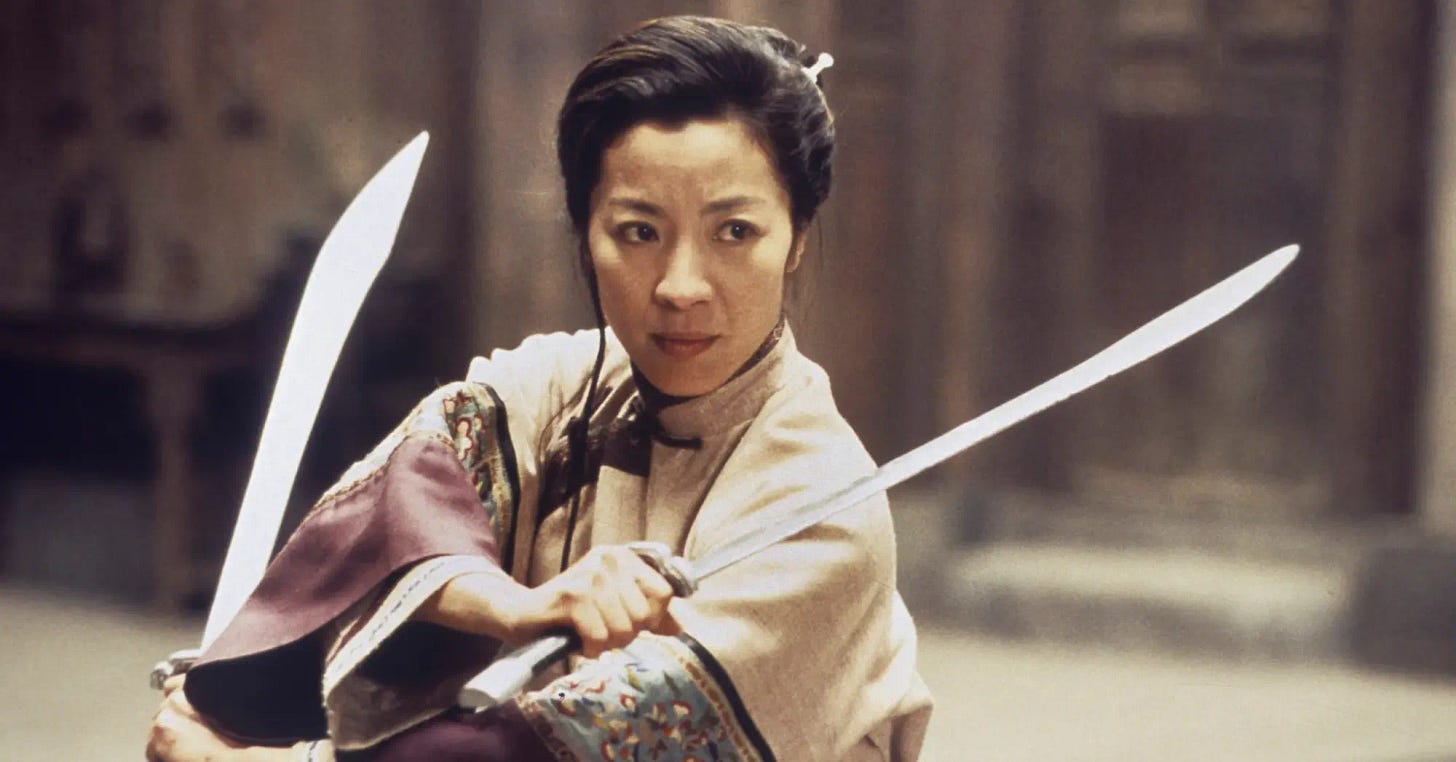
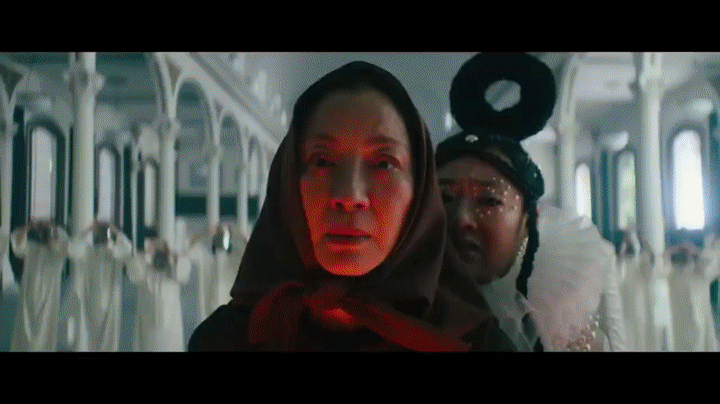



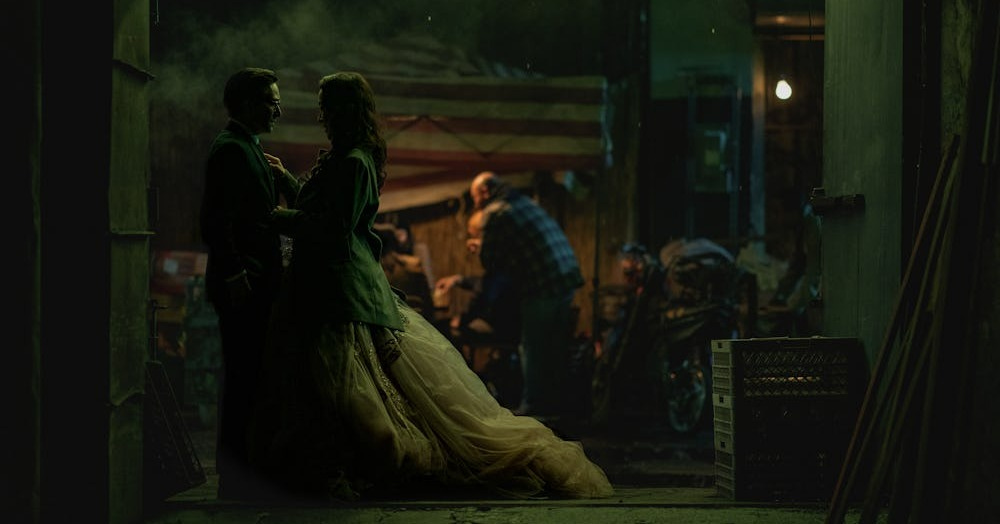
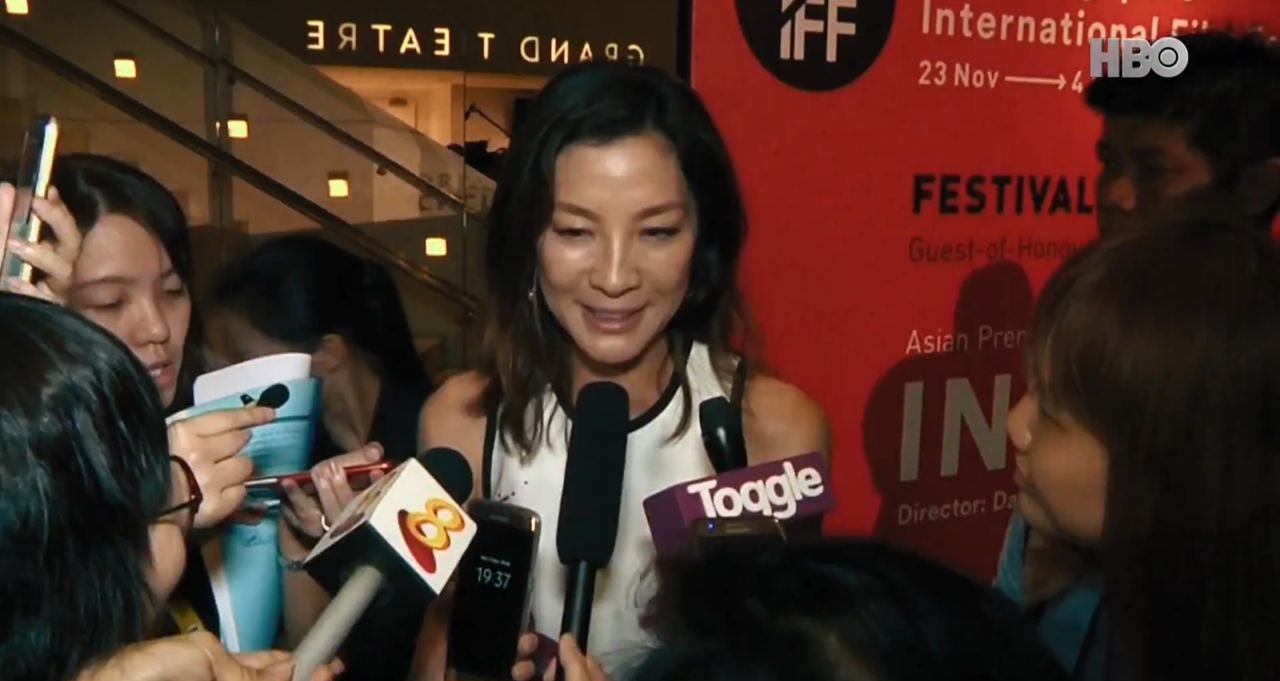

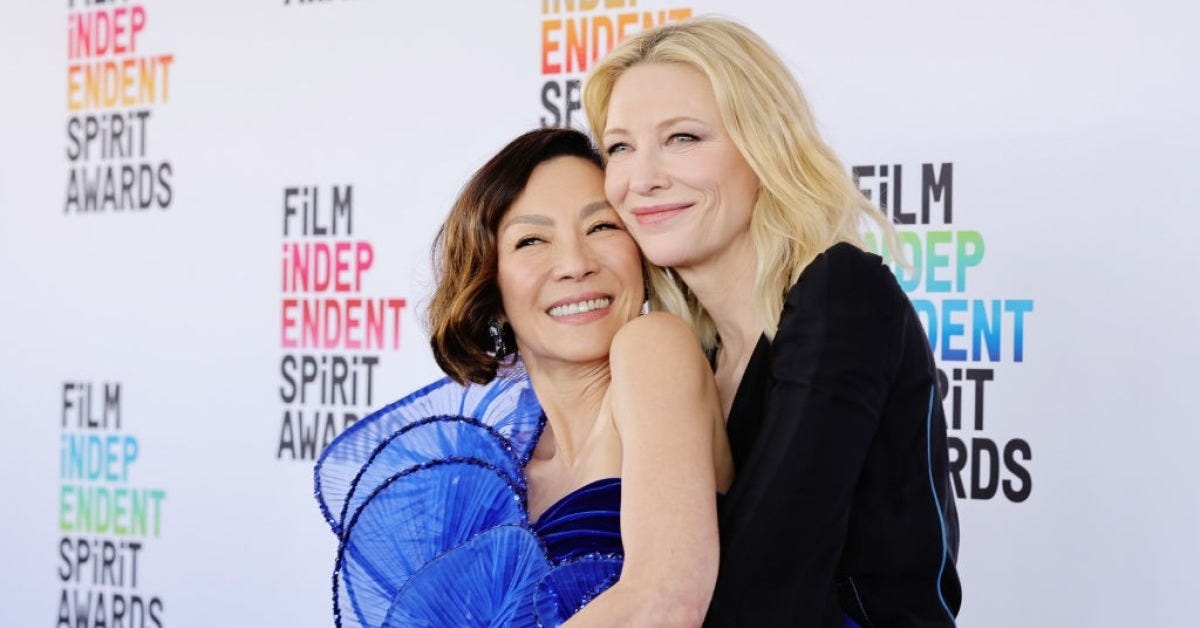





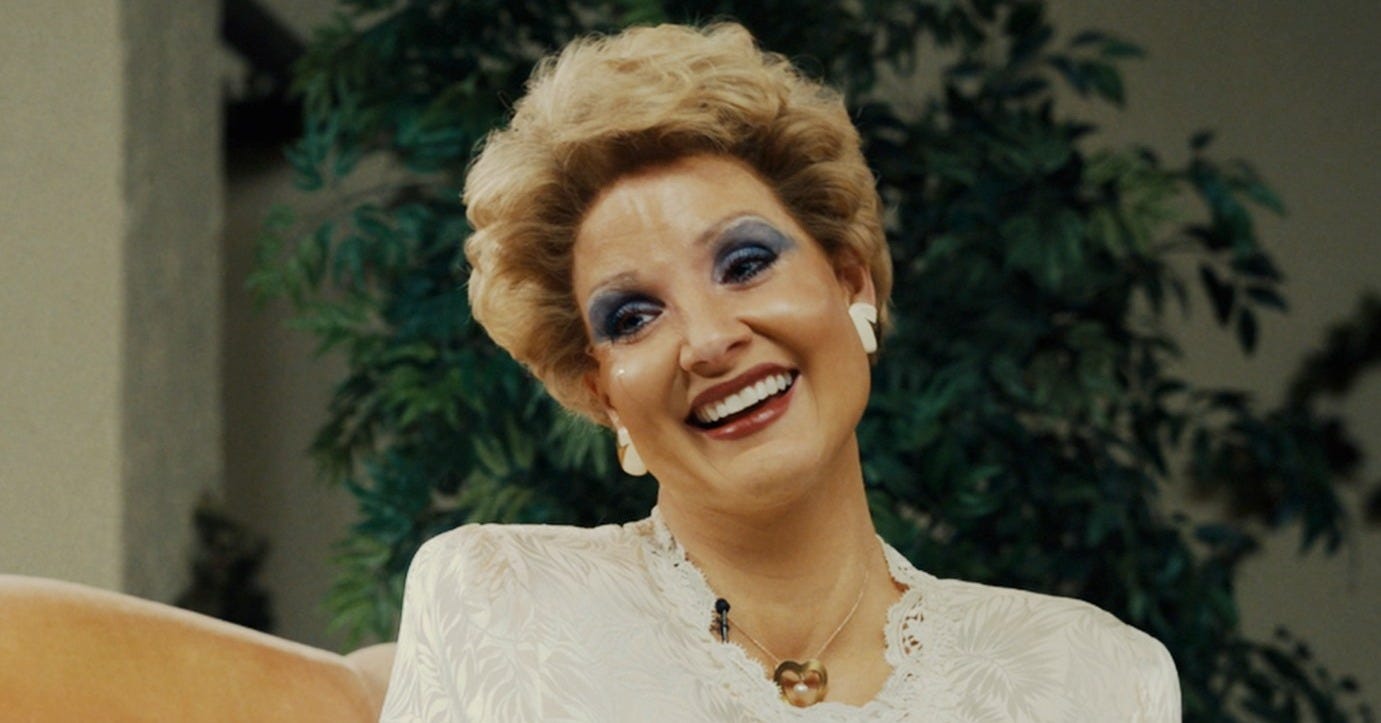
omg another singaporean on substack found! i love eeaao & michelle yeoh too :))
Love this post! EEAAO is so far my favourite movie of the decade. As a half Asian, I was very happy to see Michelle win the Oscars, but if I had to choose from performance alone, Cate was superior as Tar.